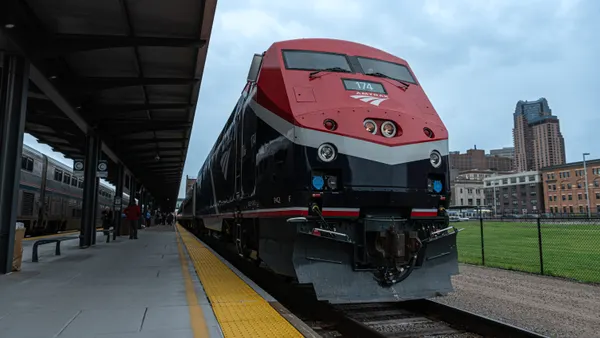Dive Brief:
- Toyota has paused some testing of its autonomous vehicle (AV) technology after a fatal accident involving an Uber AV late Sunday night, according to The New York Times and others. The tests have been halted on public roads near Toyota’s research facility in Ann Arbor, MI and in San Francisco.
- The Times notes Toyota will continue to test on three enclosed proving grounds: two University of Michigan-affiliated areas in Ann Arbor, and in Concord, CA. "We feel the incident in Tempe may have an emotional effect on our test drivers," the company said in a statement. "This timeout is meant to give them time to come to a sense of balance about the inherent risks of their jobs."
- Separately, AV testing has been placed on hold in Boston after a request by Mayor Martin Walsh and City Hall Transportation Commissioner Gina Fiandaca. Both companies that test AVs in the city, NuTonomy and Optimus Ride, agreed to the pause.
Dive Insight:
The recent death of Tempe, AZ resident Elaine Herzberg has clearly spooked some of the other AV testers in the industry, even as the preliminary investigation has suggested there was little the AV or its safety driver could have done to prevent the collision. Investigations by the local police department, the National Transportation Safety Board (NTSB) and the National Highway Traffic Safety Administration (NHTSA) are ongoing.
Meanwhile, companies testing AVs in Boston reached the decision after significant public pressure, including from U.S. Sen. Edward Markey, D-MA. In a statement, Markey called for "robust safety, cybersecurity, and privacy rules in place before these vehicles are traveling our roadways to prevent such tragedies from occurring." It came just days after Markey was one of five Senators who sent a letter urging a delay on the American Vision for Safer Transportation Through Advancement of Revolutionary Technologies (AV START) Act in the Senate so safety and privacy concerns could be further studied.
But despite the recent tragedy, many AV tests appear to be ongoing. Quartz reported that General Motors declined to comment on the status of its testing plans, although the company confirmed to Axios it still has 2019 in its sights. And Ford confirmed to Quartz that it would continue with its testing and is still planning to launch commercial AVs in 2021, while Waymo is accepting riders in the Phoenix metropolitan area.
Car companies emphasize the safety of AVs, and often tout statistics that 94% of crashes are due to human error. But the loss of life has given some companies pause. With the amount of money being invested in the technology — Toyota plans to spend $2.8 billion to develop AV capabilities — and the inherent competition as providers scramble to be the first to mass produce the technology, any pause of testing on public roads will surely be temporary.












